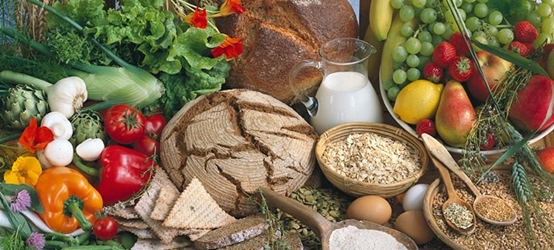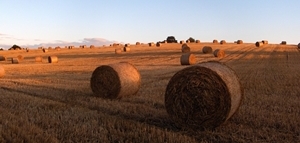Glucose is the Primary Source of Energy for Cells
Glucose is the human body's key source of energy as it provides energy to all the cells in our body. Glucose also is critical in the production of proteins, lipid metabolism and is a precursor for vitamin C production.
Glucose is the sole source of fuel to create energy for all brain and red blood cells. The availability of glucose influences many psychological processes. When glucose levels are low, psychological processes requiring mental effort l(self-control, critical thinking and decision-making) become impaired.
The human body converts carbohydrates, particularly glucose, into glycogen for storage, mainly in liver and muscle cells for daily use and in adipose cells and tissues as body fat for long term energy use.
Nature is amazing! Plants obtain energy from the sun by capturing the sun's photons during the photosynthesis process creating glucose and oxygen. Glucose is present in many fruits and vegetables.
Natural Food Sources of Glucose
Glucose is mostly found in food as a building block in more complex carbohydrates. Complex carbohydrates are composed of thousands of glucose units linked together in chains. Our digestive system breaks down complex carbohydrates into many molecules of glucose for use by our cells to create energy.
The majority of our carbohydrates intake should come from complex carbohydrates (starches) and naturally occurring sugars, rather than processed or refined sugars, which do not have the vitamins, minerals, and fiber found in complex and natural carbohydrates. Refined sugars like high-fructose corn syrup are often called "empty calories" because they have little to no nutritional value. High-fructose corn syrup is not to be confused with corn syrup, which has a high glucose content. Diets containing foods with high-frucose corn syrup contribute to the development of Type 2 Diabetes. See Natural Ways to Prevent Type 2 Diabetes
Natural Food Sources of Glucose:
1. Pasta is rich in complex carbohydrates.
2. Whole Grain Bread made without high-fructose corn syrup are nutritious sources of complex carbohydrates.
3. Whole Grains and Whole Grain Cereals made without high-fructose corn syrup are also nutritious sources of complex carbohydrates. See Health Benefits of Whole Grains - Nutrient Comparison between Whole Grains and Refined Flour Products
4. Legumes which includes beans, lentils and peas are high sources of complex carbohydrates and also contain protein.
5. Potatoes are high in starch (long chain glucose molecules) and also contain iron, potassium, phosphorus, Vitamin C and magnesium.
Complex carbs keep us satisfied for longer time than foods containing simple sugars/high-fructose corn syrup. Consumption of complex carbohydrates requires less food intake and this results in less caloric intake. That is why complex carbs are suggested in weight maintenance diets.
6. Dairy products including milk, yogurt and cottage cheese all contain lactose. Lactose is composed of one glucose molecule joins a galactose molecule, which is digested into glucose. Raw Milk is your best natural food source for glucose - Read why here!
7. Vegetables contain glucose often in the form of starch. Starch is the energy storage molecule of plants. It is formed by long chains of a glucose molecules linked together. Vegetable high in starch include, corn, squash and zucchini.
Low starch vegetables include asparagus, eggplant, mushrooms, brussels sprouts, cabbage, cauliflower, celery, cucumbers, okra, green beans, red and green peppers, onions, andtomatoes, and are all packed with nutrition.
8. Grapes are an especially rich source of glucose.
9. Honey contains about 38% glucose.
Athletes are very focused on maintaining a healthy and optimum state of glucose metabolism for peak performance. It might be short sighted for athletes to train using 'sports drinks' and 'sports bars' high in high-fructose corn syrup. These high-fructose corn syrup sweetened products provide 'empty calories' that may impair peak performance and may have long term negative metabolic effects, including risks of developing Type 2 Diabetes. See Natural Ways to Prevent Type 2 Diabetes
More about Ralph Teller. See Ralph's 1Vigor Log Calendar.










